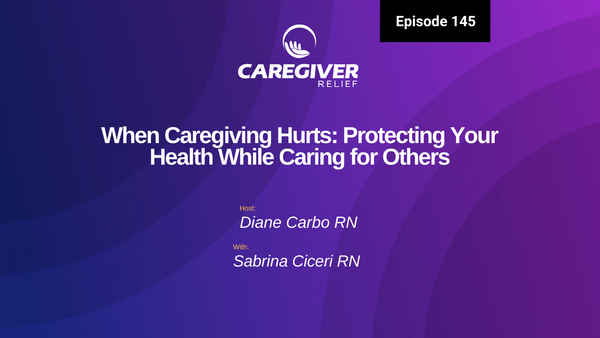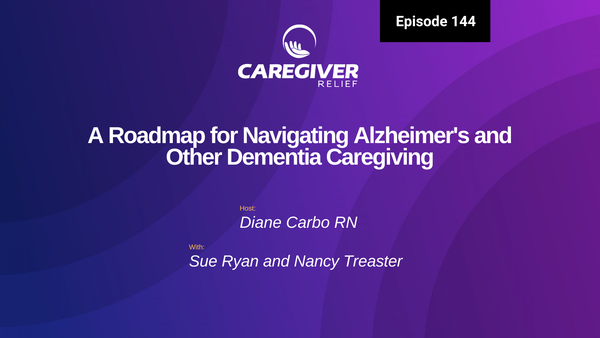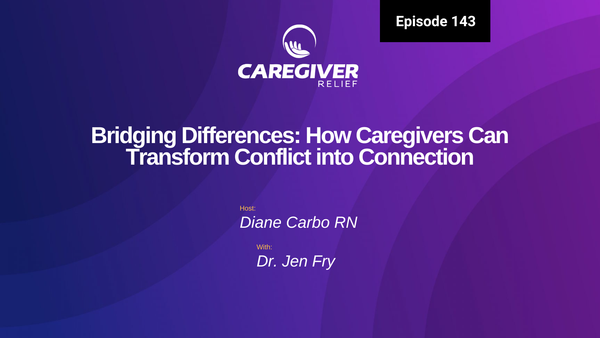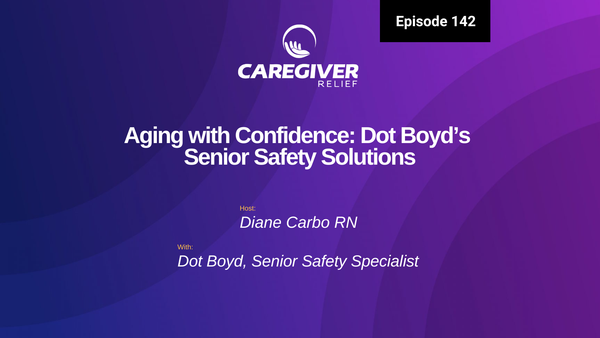Can Stress Cause Hallucinations?
Stress can induce hallucinations, sensory experiences without physical origin, including seeing or hearing things absent in reality. They can occur in healthy individuals or those with mental health issues, categorized into perceptual (imaginary sensations) and cognitive (vivid thoughts).

Hallucinations: What Are They?
Hallucinations are sensory experiences that a person perceives, but which have no physical origin. They can involve seeing, hearing, feeling, smelling, or tasting something that nobody else around you is experiencing. While hallucinations often occur in people who suffer from mental health disorders, they can also happen in healthy people.
Hallucinations can be divided into two categories: perceptual hallucinations and cognitive hallucinations. Perceptual hallucinations involve imaginary sensations that originate from within the body, such as feeling somebody is touching you when there’s no one there. Cognitive hallucinations, on the other hand, involve thoughts or memories that seem very real and vivid.
It is important to note that hallucinations can be a symptom of an underlying disorder and require professional medical attention. In some cases, they can be caused by extreme stress or significant life changes.
In this guide, we will explore the potential connection between stress and hallucinations and the various treatments available.
Clarifying the Mechanism Behind Hallucinations
Hallucinations are defined as a sensory experience that is not real, but which is perceived by the individual as real. They can take the form of auditory, visual or tactile sensations, and may involve the perception of sound, movement, and images, or even smell and taste.
The mechanism behind hallucinations is not completely understood, but recent research has suggested that it involves an imbalance in neurotransmitters and hormones in the brain, leading to an abnormal sensory experience. Neurotransmitters are chemicals that transmit messages from one part of the brain to another, and hormones are chemicals that are released by the endocrine system to regulate the function of various organs.
When neurotransmitters and hormones become imbalanced, it can interfere with the normal functioning of the brain and lead to unusual sensations. For example, an excess of dopamine, a neurotransmitter involved in reward and pleasure, can lead to visual or auditory hallucinations. Similarly, an imbalance in serotonin, a hormone involved in mood regulation, can cause feelings of paranoia and lead to perceptual distortions.
The mechanism behind hallucinations is complex and further research is needed to understand how these processes work and how to treat them. However, it is clear that stress can play a significant role in the development of hallucinations.
Stress and Hallucinations
While stress is not always the cause of hallucinations, it can be a contributing factor. It is important to understand the role stress plays in the development of hallucinations in order to effectively manage or treat them.
Hallucinations are disturbances in perception and involve sensing things that are not actually there. Some common types of hallucinations are visual, auditory, tactile, olfactory and gustatory. Hallucinations can be caused by a variety of factors, and stress is one of them.
Stress can disrupt the normal functioning of our brains. When we are exposed to stressful situations, our body releases hormones such as adrenaline and cortisol to alert us to the danger and put us into ‘flight or fight’ mode. This in turn activates our ‘fight or flight’ response which affects our brain functioning and can lead to changes in our behaviour, judgement, and thoughts. It is believed that this disruption in brain functioning can contribute to the development of hallucinations.
Studies have shown that people who experience high levels of stress are more prone to developing hallucinations than those who have low levels of stress. This is because when the brain is stressed, it can be more vulnerable to mental health disorders, such as schizophrenia, which can cause hallucinations. Additionally, stress can also contribute to more mundane causes of hallucinations, such as lack of sleep or substance abuse.
Furthermore, the link between stress and psychological disorders is well established. Stressful events and life experiences can trigger episodes of depression, anxiety, and post-traumatic stress disorder. These psychological disorders are also associated with hallucinations, especially when coupled with poor coping mechanisms.
Stress and Psychological Disorders
It is well-known that stress can have a range of physical and mental health effects. This includes the development of psychological disorders, which can be caused or exacerbated by stressful life events. Stress is the body’s normal reaction to challenging situations, and it can help us to cope with difficult experiences. However, when our bodies become overwhelmed by stress, this can have a detrimental effect on our wellbeing.
Psychological disorders that have been linked to stress include anxiety disorders, depression, post-traumatic stress disorder, and even psychosis. Anxiety disorders are types of mental health problems that involve excessive worry or fear. People with depression may experience negative thoughts, lack of energy, and feelings of worthlessness. Post-traumatic stress disorder is an extreme form of anxiety which can be triggered by a past traumatic event. Psychosis is a serious mental illness which causes people to have false beliefs and lose touch with reality.
These conditions can be linked to stress in several different ways. Firstly, many people are already prone to certain psychological disorders, and this may be exacerbated by stressful situations. Stress can also trigger these disorders, particularly if someone has experienced a traumatic life event. In addition, chronic stress can lead to increased levels of anxiety which can lead to other psychological issues.
It is important that people who are experiencing high levels of stress seek professional help. This can allow them to receive the correct treatment for any psychological health issues, preventing the symptoms from developing further. If left untreated, these issues can lead to more severe complications which can affect many aspects of a person’s life.
Stress is an inevitable part of life, and when it is not handled adequately, it can lead to a whole array of mental health problems. It is important to understand how stress affects the functioning of the brain, as this can lead to serious health issues, such as hallucinations.
How Stress Affects the Brain
When we experience stress, our bodies produce hormones such as adrenaline and cortisol, which increase heart rate and blood pressure. This physiological response is a natural defense mechanism to help us cope with dangerous or stressful situations. However, when this reaction is triggered too often, it puts strain on the body, leading to long-term health issues.
On an emotional level, stress can make us feel overwhelmed, anxious, or depressed. It can also lead to poor decision making due to impaired judgement or lack of concentration.
When it comes to the functioning of the brain, stress can have a negative impact by disrupting normal brain activity. Cortisol, for example, has been found to reduce activity in the hippocampus, which is responsible for memory and learning. Furthermore, the frequent release of stress hormones can interfere with the neurotransmitters responsible for regulating mood and emotion. This can lead to psychological symptoms such as irritability, aggression, and even hallucinations.
The Role of the Amygdala
The amygdala, a small almond-shaped region located in the brain’s temporal lobe, plays a major role in experiencing and responding to stress. When we feel stressed, the amygdala releases neurochemicals that alert the hypothalamus, and this triggers a “fight-or-flight” response. In other words, the amygdala prepares the body for either confronting or running away from the perceived threat.
However, if the amygdala is overstimulated due to prolonged stress, this can lead to an extreme fight-or-flight response. This can cause panic attacks, anxiety, and even hallucinations.
The Link Between Stress and Psychological Disorders
In addition to physical health issues, prolonged and intense stress can cause psychological disorders, such as depression and anxiety. Studies have shown that the stress hormone cortisol can interfere with the way that serotonin and dopamine are released in the brain. As these two neurotransmitters play a key role in regulating mood, memory, learning, and behaviour, disruption of their release can lead to mental health issues.
Furthermore, chronic stress puts the body in a state of high alert for an extended period of time. This can exhaust the body’s resources, resulting in low energy levels, poor concentration, and insomnia. Depression, anxiety, and stress-induced hallucinations are all potential outcomes of prolonged stress.
Research has shown that stress can trigger hallucinations in both healthy individuals and those diagnosed with a psychiatric illness. A wealth of clinical studies have explored the effects of stress on the brain and its connection to hallucinations.
For instance, a 2006 study conducted by researchers at the Weill Medical College of Cornell University, New York looked at the effects of acute stress on healthy volunteers. At the end of the experiment, more than half the participants reported having had aural and visual hallucinations.
Other research has also suggested a link between prolonged exposure to stress and increased risk of psychotic episodes. A 2011 study published in the journal Schizophrenia Research found that individuals who experienced traumatic experiences as children were more susceptible to auditory and visual hallucinations in adult life.
In addition, a 2013 article published in Psychosomatic Medicine analyzed data from a longitudinal study of 482 patients diagnosed with schizophrenia. The results showed that stress significantly increased the likelihood of auditory and visual hallucinations in these individuals.
Furthermore, a 2008 study by researchers at the Institute of Psychiatry, King's College London, looked at the effects of psychosocial stress on the performance of individuals with psychotic disorder. Results from the study showed that psychosocial stressors such as financial and work-related issues significantly increased symptoms of hallucinations in patients.
These findings are further supported by a 2015 study conducted by researchers at the University of Cologne, Germany. They examined the effects of stress on schizophrenic patients and found that stress levels correlated positively with hallucinations.
The above studies demonstrate a strong relationship between stress and hallucinations and further highlight the need for an effective treatment to combat this problem.
Hallucinations are disturbances of perception and cognition which involve sensing things that are not physical reality. In addition to stress, there are several other possible causes of hallucinations. It is important to be aware of these other causes, as they may help shed light on the underlying cause of any particular individual's experience with hallucinations.
Possible Causes of Hallucinations
One possible cause of hallucinations is chemical imbalances in the brain. People with Schizophrenia, a psychiatric disorder, are known to have an imbalance of neurotransmitters such as dopamine, which can lead to hallucinations. Another potential cause of hallucinations is neurological impairment, such as a stroke or traumatic brain injury.
In some cases, hallucination episodes can also be caused by the use of certain drugs, including alcohol and illicit drugs. In addition, certain drugs used to treat mental health conditions, such as antipsychotics, can also have hallucinogenic side effects.
Certain medical conditions can also cause hallucinations. For example, people with Parkinson's disease are at risk of experiencing hallucinations due to the presence of Lewy bodies in the brain. Additionally, people with dementia may experience hallucinations as a result of the deteriorating effect of the condition on the brain.
Sleep deprivation and fatigue can also cause people to experience hallucinations, as the brain is not functioning optimally. Finally, extreme emotional distress can also cause people to experience hallucinations due to the intense strain it puts on the body and mind.
Managing Stress-Induced Hallucinations
Hallucinations caused by stress can be both distressing and disruptive to everyday life. Therefore, it is important to understand the best ways to tackle these issues. Several strategies can help cope with stress-induced hallucinations, allowing you to manage the condition and reduce its severity.
1. Removing Stressful Triggers
Stress is a major contributor to hallucinations. To reduce the risk of experiencing these phenomena, it is important to identify and remove stressful triggers that may be causing them. Common triggers can include late nights, working too hard, or overcommitment.
Removing these triggers often helps reduce the intensity and frequency of hallucinations. Additionally, it is important to maintain a healthy lifestyle. Eating healthy foods, exercising regularly, and getting enough rest can have a positive effect on your overall wellbeing and help manage stress.
2. Cognitive Behavioral Therapy (CBT)
Cognitive behavioral therapy, or CBT, is a type of psychotherapy that can help reduce the impact of stress on hallucinations. CBT focuses on identifying and changing unhelpful thoughts and behavior patterns. Through regular sessions with a therapist, individuals learn how to identify negative thought patterns and develop new coping strategies for managing stress.
CBT can help in managing stress-induced hallucinations. It teaches individuals to identify their triggers, recognize faulty thought patterns, and find new ways to cope with stress.
3. Medications
Medication can also be used to manage stress-induced hallucinations. Antipsychotic medications, such as risperidone and olanzapine, are commonly prescribed to reduce the frequency and intensity of hallucinations. These medications can help normalize brain activity and improve overall psychological wellbeing.
Medications should only be taken under the supervision of a doctor. It is important to understand the possible side effects and any interactions they may have with other medications or substances.
4. Positive Self-Talk
Positive self-talk is another effective strategy to manage stress-induced hallucinations. This involves talking to yourself in a positive and constructive way. It can help identify unhelpful thought patterns and replace them with more positive and productive ones. Positive self-talk can help build resilience and reduce stress levels.
In times of stress, positive self-talk can be an effective way to reframe a situation and take a more constructive approach. It can help to reduce anxiety, which can help reduce the risk of hallucinations.
5. Reach Out for Support
Finally, it is important to reach out for support when dealing with stress-induced hallucinations. Talking to a professional therapist or joining a support group can help individuals feel less alone and provide emotional support during difficult times.
Support groups can be a great resource for individuals who are struggling with stress-related issues. Talking to others with similar experiences can be incredibly beneficial and supportive.
Medications for Stress-Related Hallucinations
Hallucinations can be caused by various psychological and physical factors, including stress. While there is no single medication that can address all forms of hallucinations, there are certain medications that may help manage the symptoms associated with these experiences.
Antipsychotic medications are the most commonly used drugs for managing hallucinations. These medications are designed to reduce the intensity of any distressing hallucinations that may occur due to stress. Specifically, they block the production of dopamine, which plays a key role in the formation of hallucinations, and can help to reduce overall levels of anxiety.
Other medications, such as antidepressants and anxiolytics, may also be used to help alleviate the symptoms of stress-induced hallucinations. Antidepressants work by altering the chemical balance in the brain to reduce feelings of depression and hopelessness. Anxiolytics work by calming the nervous system, decreasing hyperarousal and alleviating feelings of distress.
It is important to note that these medications should only be used under the guidance of a qualified medical professional. In some cases, the side effects of these medications can outweigh the potential benefits. Everyone responds differently to various types of medications, so it is essential to consult with your doctor and get guidance tailored to your individual needs.
When it comes to stress, the old adage that ‘prevention is better than cure’ rings especially true. In this section, we will look at how different lifestyle choices such as good nutrition and exercise can help to reduce the risk of stress-induced hallucinations.
Good nutrition is essential for overall health and wellbeing and there is evidence that nutritious diets can help to reduce the impact of stress. Eating a balanced diet with plenty of fruits, vegetables, whole grains, lean proteins, and healthy fats can fuel your body with the nutrients it needs. Such a diet can also help to support your immune system and keep you mentally alert and energetic. Additionally, some studies suggest that vitamins, minerals, and other dietary supplements may help reduce stress levels.
Exercise is another important factor in the fight against stress. Regular physical activity releases endorphins, which are hormones that act as natural painkillers, and can even give you an energy boost. Exercise also helps reduce stress levels by reducing tension, improving sleep quality and combating fatigue. Even a brisk walk or a session of stretching can help alleviate stress-related tension.
It is important to note that everyone's needs are different, so a level of physical activity that works for one person may not work for another. For instance, if you suffer from anxiety, it is best to avoid strenuous activities and instead opt for gentler exercises like swimming or yoga. Consult with your doctor or a certified fitness trainer to determine the type and level of exercise that works best for you.
In combination, good nutrition and regular exercise can help to reduce stress and build up resilience to stressful events. Taking the time to look after your physical and mental health can have a positive effect not only on your stress levels but also on your overall wellbeing.
The Importance of Seeking Medical Help for Stress-Induced Hallucinations
Hallucinations are a symptom of many mental health conditions, and living with them can be very difficult. It is essential for anyone experiencing stress-induced hallucinations to seek medical help. Medical professionals can help people assess and manage their symptoms and prevent the hallucinations from escalating and becoming disruptive.
People who are having trouble managing their stress levels also need help in navigating through the physical and psychological effects of stress. Visiting a healthcare professional allows individuals to receive a comprehensive evaluation and create a customized plan for addressing their symptoms. A mental health provider can provide evidence-based treatments such as medication, psychotherapy, or a combination of both to reduce the effects of stress.
Physical health professionals such as primary care physicians and psychiatrists are particularly attentive to any changes in mental health and can detect if an individual is suffering from stress-induced hallucinations. They can suggest medications that may help with anxiety and depressive symptoms related to stress. In addition, they may refer individuals to a therapist to further manage anxiety and stress-related conditions.
Treatment is not only about managing specific symptoms, but it also helps patients understand the underlying causes of their distress. Therapists specialize in helping individuals identify what triggers their stress and develop coping skills to better manage their emotional states when they experience stress. Through this process, it is possible to reduce the intensity of stress-induced hallucinations and to gain insight into how to prevent them from occurring in the future.
Seeking medical help is key for individuals to gain control of their symptoms. Medical professionals can provide evidence-based treatments to address the root cause of stress-induced hallucinations. Additionally, therapists can guide people in developing skills for managing stress and creating healthier lifestyles.
In conclusion, it is clear that stress can play a significant role in the development of hallucinations. Stress can be caused by a variety of factors, including psychological disorders, brain physiology, lifestyle choices, and more. It is important to recognize the signs of stress-induced hallucinations and take proactive steps to reduce its effects, including making lifestyle changes, seeking medical attention, and using medications. All these steps can work together to help prevent or reduce the severity of stress-induced hallucinations. With the right approach, this phenomenon can be effectively managed to help individuals reclaim their lives.





